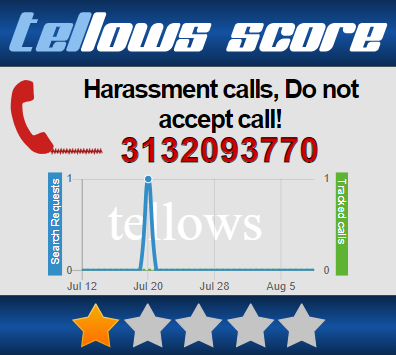
The Case of 313-209-3770
In today’s digital age, our smartphones have become indispensable tools, connecting us to the world and our loved ones. However, along with the convenience of constant connectivity comes the unpleasant reality of harassment calls. These calls can range from annoying telemarketing pitches to more sinister forms of harassment that can cause significant distress. One such number that has gained notoriety for its harassment calls is 313-209-3770. In this article, we will explore the phenomenon of harassment calls, the impact they can have on individuals, and strategies to protect yourself from them, with a specific focus on the notorious number 313-209-3770.
Harassment calls, Do not accept call
5055969453
7879001854
3132093770
8774879570
8449702032
8336170604
0342258324
3236227687
7819891000
Understanding Harassment Calls
Harassment calls can take various forms, including telemarketing, debt collection, and scam calls. In some cases, the intent may be purely financial, with scammers attempting to trick individuals into divulging personal information or making fraudulent payments. On the other hand, some calls may be motivated by a desire to cause emotional distress or harass individuals for personal reasons.
The Impact of Harassment Calls
Receiving constant harassment calls can have a profound impact on an individual’s well-being. The persistent ringing of the phone, often at inconvenient times, can cause stress, anxiety, and a sense of helplessness. Moreover, individuals may feel violated as their personal space is invaded by these unwelcome calls. In severe cases, victims may experience sleep disturbances, difficulty concentrating, and a deterioration in mental health.
The Notorious Number: 313-209-3770
A quick online search reveals that 313-209-3770 is a number that has been reported by numerous individuals for harassment calls. Complaints range from aggressive debt collection tactics to outright scams. It is crucial to note that phone numbers used for harassment can often be spoofed, making it challenging to trace the origin or identify the real perpetrators. However, awareness of specific numbers associated with harassment can empower individuals to take proactive steps to protect themselves.
Protecting Yourself from Harassment Calls
- Do Not Answer Unknown Numbers: One of the simplest yet effective strategies is to avoid answering calls from unknown numbers. Legitimate callers often leave voicemails or send text messages if the matter is urgent or important.
- Use Call Blocking Apps: Many smartphones come equipped with call blocking features, allowing users to block specific numbers. Additionally, there are third-party apps available that can help filter and block unwanted calls.
- Register with the National Do Not Call Registry: In some countries, including the United States, individuals can register their phone numbers with the National Do Not Call Registry. While this may not eliminate all unwanted calls, it can significantly reduce the number of telemarketing calls.
- Report Harassment to Authorities: If you receive calls that are threatening or involve scams, it’s essential to report them to the appropriate authorities. In the United States, the Federal Trade Commission (FTC) handles complaints related to unwanted calls.
- Document and Record: Keep a record of all harassment calls, including the date, time, and details of the call. If the harassment persists, this documentation can be valuable when reporting the issue to law enforcement.
- Consider Changing Your Number: In extreme cases, changing your phone number may be the most effective solution. This can be a last resort if harassment calls continue despite taking other preventative measures.
Conclusion
Harassment calls, such as those originating from the number 313-209-3770, can be a significant source of stress and discomfort. As technology evolves, so do the tactics of those seeking to exploit it for nefarious purposes. By staying informed, employing proactive strategies, and reporting incidents of harassment, individuals can better protect themselves from the negative impact of unwanted calls. Remember, it’s crucial to share information with friends and family to collectively create a safer digital environment for everyone.










